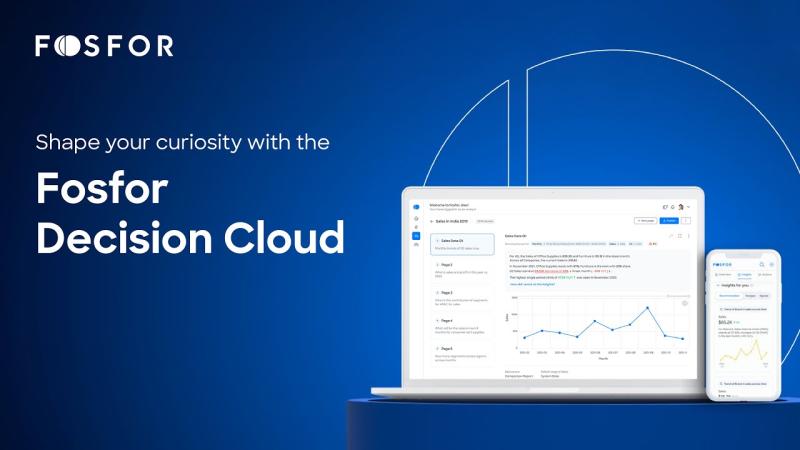Use AI in Insurance to Optimize Pricing and Efficiency

Strong8k brings an ultra-HD IPTV experience to your living room and your pocket.
Discover how machine learning for insurance from the Fosfor Decision Cloud can transform underwriting, claims processing, and customer experience.
Sub-optimal underwriting, delayed claims reservation and processing along with limited personalization for customers are complex challenges that require data-driven thinking and better analytical execution to effectively overcome.
The Fosfor Decision Cloud helps insurance companies implement machine learning and AI to optimize pricing, maximize liquidity, increase operational efficiency, and ultimately provide a better customer experience than the competition.
The insurance industry is undergoing a transformation driven by advancements in artificial intelligence (AI). AI technologies are being leveraged to optimize pricing models, improve efficiency, and enhance customer experiences. This article explores how AI is revolutionizing the insurance sector, focusing on its impact on pricing strategies and operational efficiency.
Optimizing Pricing with AI
Data-Driven Risk Assessment
AI enables insurers to assess risk more accurately by analyzing vast amounts of data from various sources, including social media, telematics, and IoT devices. Machine learning algorithms can identify patterns and correlations that traditional methods might miss, allowing for a more precise evaluation of individual risk profiles. This results in personalized pricing that reflects the true risk associated with each policyholder.
Dynamic Pricing Models
Traditional insurance pricing models often rely on static data and assumptions. AI introduces dynamic pricing models that can adjust in real-time based on new information. For example, usage-based insurance (UBI) policies leverage telematics data to monitor driving behavior. AI algorithms analyze this data to adjust premiums dynamically, rewarding safe driving and penalizing risky behavior. This approach not only incentivizes safer behavior but also ensures that premiums are fair and reflective of actual risk.
Fraud Detection and Prevention
Insurance fraud is a significant challenge that drives up costs for insurers and policyholders alike. AI plays a crucial role in detecting and preventing fraud by analyzing patterns and anomalies in claims data. Machine learning models can flag suspicious activities, such as inflated claims or staged accidents, for further investigation. By reducing fraudulent claims, insurers can maintain competitive pricing and pass on savings to honest customers.
Enhancing Operational Efficiency
Automating Claims Processing
One of the most labor-intensive aspects of the insurance industry is claims processing. AI-powered systems can automate much of this process, from initial claim submission to final settlement. Natural language processing (NLP) algorithms can extract relevant information from claim forms and supporting documents, while computer vision can analyze images of damaged property or vehicles. This automation reduces the time and cost associated with claims processing, resulting in faster payouts and improved customer satisfaction.
Streamlining Underwriting
Underwriting is another area where AI is making a significant impact. Traditionally, underwriters rely on historical data and manual assessments to determine policy terms and pricing. AI streamlines this process by analyzing real-time data and providing underwriters with actionable insights. Predictive analytics can assess the likelihood of future claims, allowing for more accurate pricing and better risk management. This not only improves efficiency but also enhances the overall quality of underwriting decisions.
Enhancing Customer Engagement
AI-powered chatbots and virtual assistants are transforming customer service in the insurance industry. These tools can handle routine inquiries, provide policy information, and assist with claims submissions around the clock. By automating these interactions, insurers can free up human agents to focus on more complex tasks, improving overall efficiency. Moreover, AI-driven personalization can enhance customer engagement by tailoring recommendations and communications to individual preferences and needs.
Challenges and Considerations
Data Privacy and Security
The use of AI in insurance relies heavily on the collection and analysis of personal data. This raises concerns about data privacy and security. Insurers must ensure that they comply with relevant regulations, such as GDPR and CCPA, and implement robust security measures to protect sensitive information. Building customer trust is essential for the successful adoption of AI-driven solutions.
Ethical Implications
AI algorithms can sometimes produce biased outcomes, reflecting the biases present in the training data. Insurers must be vigilant in monitoring and mitigating these biases to ensure fair and equitable treatment of all customers. Additionally, transparency in AI decision-making processes is crucial to maintain customer trust and regulatory compliance.
Conclusion
AI is revolutionizing the insurance industry by optimizing pricing models and enhancing operational efficiency. Through data-driven risk assessment, dynamic pricing, fraud detection, automated claims processing, streamlined underwriting, and improved customer engagement, AI is transforming the way insurers operate. However, it is essential to address challenges related to data privacy, security, and ethical implications to fully realize the benefits of AI in insurance. As technology continues to advance, the integration of AI will undoubtedly play a pivotal role in shaping the future of the insurance industry.
Note: IndiBlogHub features both user-submitted and editorial content. We do not verify third-party contributions. Read our Disclaimer and Privacy Policyfor details.



